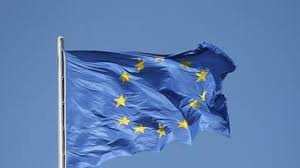
In response to Russia’s ongoing aggression in Ukraine, the European Union (EU) has put forth a proposal for new trade restrictions targeting approximately two dozen firms accused of supporting Russia’s war efforts. Among these companies are three based in mainland China, marking the first time the EU has sought to impose restrictions on Chinese entities since the onset of Russia’s invasion of Ukraine.
According to a draft proposal seen by Bloomberg, the list of targeted firms extends beyond China to include businesses in Hong Kong, Serbia, India, and Turkey, with some facing such measures for the first time. However, the companies are not identified in the document for legal reasons.
The proposed restrictions aim to prevent European firms from engaging in trade with the listed entities, as part of the EU’s broader strategy to impede Russia’s access to sanctioned goods through third-country companies. Notably, previous attempts to list several Chinese firms were abandoned due to resistance from certain member states and assurances provided by Beijing.
The potential implementation of these sanctions underscores the gravity of the situation for the EU, particularly concerning its trade relationship with China, a key economic partner. Germany, in particular, has significant stakes in this matter, given China’s status as the largest market for German automakers such as Volkswagen AG.
However, any EU sanctions necessitate unanimous agreement from all member states and are subject to potential alterations before final adoption.
While the European Commission declined to comment on the proposal, the Chinese embassy in Brussels did not immediately respond to inquiries.
The targeted firms, predominantly in the technology and electronics sectors, are accused of contributing to Russia’s military and technological capabilities or supporting its defense and security sector, as outlined in the document.
Commission President Ursula von der Leyen had previously cautioned Chinese President Xi Jinping against involvement in the conflict during her visit to Beijing in April. She emphasized the importance of China refraining from providing military equipment, directly or indirectly, to Russia, citing potential violations of international law and the detrimental impact on EU-China relations.
The proposed list includes companies from various jurisdictions, including India, Sri Lanka, Serbia, Kazakhstan, Thailand, Turkey, and Hong Kong. However, the document clarifies that their inclusion does not imply attribution of responsibility to the respective jurisdictions.
Most of these firms are reportedly involved in the importation of prohibited technologies and electronics, subsequently reexporting these goods to Russia.
In addition to these proposed trade restrictions, the EU has put forward sanctions targeting over 110 individuals and entities to commemorate the two-year anniversary of Russia’s invasion of Ukraine.
The EU’s efforts reflect its commitment to leveraging economic measures to deter support for Russia’s military actions, underscoring the international community’s united stance against aggression and violation of sovereignty.
Sources By Agencies


